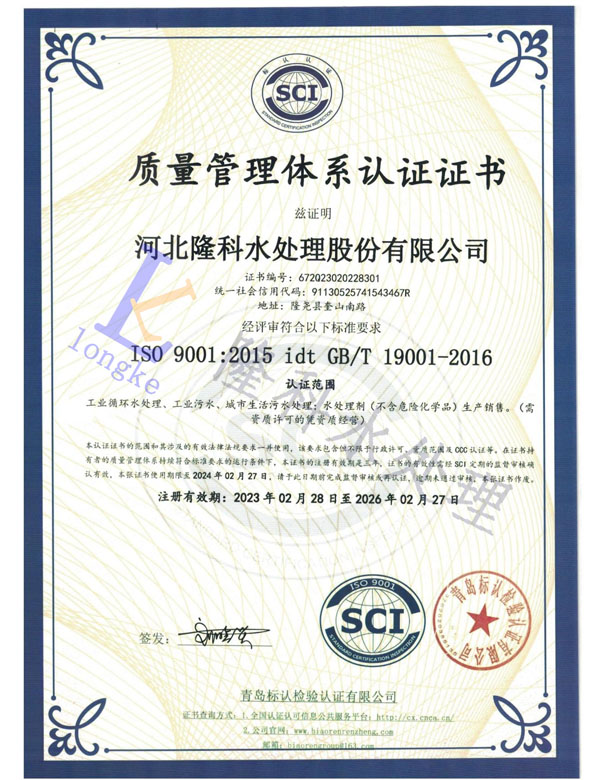flocculant chemicals for water treatment
Flocculant Chemicals for Water Treatment A Comprehensive Overview
Water treatment is a critical process aimed at improving water quality for various uses, including drinking, industrial applications, and environmental preservation. Among the many chemicals used in water treatment, flocculants play a pivotal role in enhancing the efficiency of sedimentation and filtration processes. This article delves into the significance, types, and applications of flocculant chemicals in water treatment.
Flocculants are substances that promote the agglomeration of suspended particles in water, forming larger clusters known as flocs. This process, called flocculation, is crucial in removing impurities from water. When flocculants are added to water, they neutralize the charges on the suspended particles, allowing them to come together and form larger aggregates that can easily be removed through sedimentation or filtration.
There are various types of flocculants, classified mainly into organic and inorganic categories. Organic flocculants, often derived from natural sources, include polyacrylamides, polysaccharides, and natural starches. In contrast, inorganic flocculants typically include aluminum sulfate (alum) and ferric chloride. Each type has its advantages and is chosen based on the specific requirements of the water treatment process.
One of the most commonly used organic flocculants is polyacrylamide. It is known for its efficiency in low dosages, making it an economical choice for water treatment facilities. Polyacrylamides are effective in various water qualities and can be tailored by adjusting their molecular weight and charge density, allowing for customized solutions that meet particular treatment needs.
flocculant chemicals for water treatment

Inorganic flocculants like alum are also widely used due to their cost-effectiveness and availability. Alum works by coagulating suspended solids and is highly effective in removing turbidity from water, making it one of the leading choices for municipal water treatment plants. However, it often requires careful management of pH levels and can introduce additional metallic ions into the treated water, which may require further treatment.
The applications of flocculant chemicals in water treatment are diverse. They are used in municipal water treatment plants to ensure safe drinking water, in industrial processes to treat wastewater, and in mining operations to manage effluents. Additionally, flocculants are employed in the treatment of stormwater runoff and in agricultural settings to improve water quality in irrigation practices.
While flocculants significantly enhance the efficiency of water treatment processes, their use also raises environmental concerns. Residual chemicals from flocculants can impact aquatic ecosystems if not managed properly. As such, ongoing research focuses on developing biodegradable and environmentally friendly flocculants that minimize environmental impact while maintaining effectiveness.
In conclusion, flocculant chemicals are essential tools in the water treatment industry, playing a key role in enhancing the removal of suspended particles and improving water quality. Understanding the various types, applications, and implications of flocculants is crucial for optimizing water treatment processes. As the demand for clean water continues to grow globally, advances in flocculant technology will be vital in ensuring sustainable and efficient water treatment solutions. The future of water treatment lies in balancing efficiency with environmental responsibility, and flocculants will undoubtedly remain a significant part of this equation.
-
lk-319-special-scale-and-corrosion-inhibitor-for-steel-plants-advanced-solutions-for-industrial-water-systemsNewsAug.22,2025
-
flocculant-water-treatment-essential-chemical-solutions-for-purification-processesNewsAug.22,2025
-
isothiazolinones-versatile-microbial-control-agents-for-industrial-and-consumer-applicationsNewsAug.22,2025
-
scale-inhibitor-key-solutions-for-water-system-scale-preventionNewsAug.22,2025
-
organophosphonates-versatile-scale-inhibitors-for-industrial-water-systemsNewsAug.22,2025
-
scale-and-corrosion-inhibitor-essential-chemical-solutions-for-water-system-maintenanceNewsAug.22,2025





